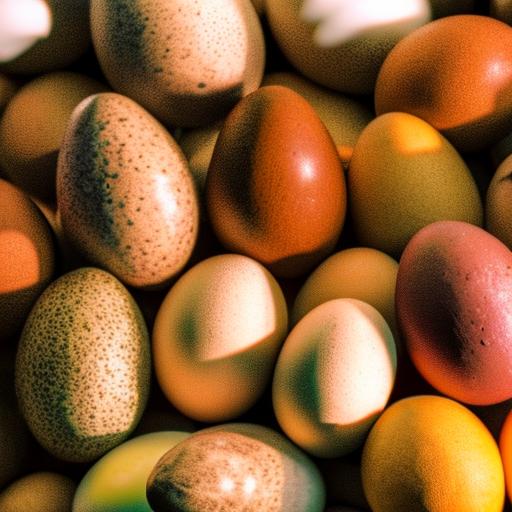Heirloom chicken breeds represent an important aspect of agricultural heritage, encompassing a wide range of traits and characteristics that have been preserved over generations. These breeds are valued for their distinct qualities, including superior taste, resilience, and adaptability to specific environmental conditions. Heirloom chickens are also recognized for their striking plumage and unique appearances, making them popular among backyard poultry keepers and small-scale farmers.
In recent years, there has been increased focus on conserving and promoting heirloom chicken breeds, as they offer a sustainable alternative to industrial poultry production methods. By raising heirloom chickens, individuals can play a role in maintaining genetic diversity and ensuring the longevity of these distinctive and valuable birds for future generations.
Table of Contents
Key Takeaways
- Heirloom chicken breeds are traditional breeds that have been raised for generations and are valued for their unique characteristics and traits.
- Heirloom chicken breeds have a rich history and origins, often dating back to specific regions or countries where they were originally developed.
- Characteristics and traits of heirloom chicken breeds can include unique plumage, egg color, foraging abilities, and resistance to certain diseases.
- Popular heirloom chicken breeds include the Plymouth Rock, Rhode Island Red, and Orpington, each with their own distinct qualities and appearances.
- Conservation and preservation efforts for heirloom chicken breeds are important to maintain genetic diversity and prevent the loss of valuable traits.
History and Origins of Heirloom Chicken Breeds
Origins of Iconic Breeds
For instance, the Sussex chicken breed is believed to have originated in England during the Roman occupation, while the Orpington breed was created in the 19th century by William Cook in the village of Orpington, Kent. These breeds were selectively bred for their desirable traits, such as exceptional egg production, superior meat quality, or their ability to thrive in free-range foraging environments.
The Development of Distinct Varieties
Over time, these characteristics became an integral part of the genetic makeup of the breeds, leading to the development of distinct heirloom varieties. Each breed’s unique characteristics were shaped by the careful selection and breeding practices of dedicated farmers and breeders.
Preservation of a Cultural Heritage
As agriculture became more industrialized in the 20th century, many heirloom chicken breeds fell out of favor, replaced by more commercially viable hybrids. However, dedicated breeders and conservationists have worked tirelessly to preserve these historic breeds, recognizing their value as a genetic resource and cultural heritage.
Characteristics and Traits of Heirloom Chicken Breeds

Heirloom chicken breeds are known for their diverse range of characteristics and traits, which make them well-suited for a variety of purposes. For example, the Rhode Island Red is prized for its excellent egg-laying abilities, producing large brown eggs consistently throughout the year. On the other hand, the Brahma breed is renowned for its large size and flavorful meat, making it a popular choice for small-scale meat production.
Additionally, many heirloom chicken breeds are valued for their hardiness and ability to thrive in free-range or pasture-based systems, making them an ideal choice for sustainable and organic farming practices. These breeds also come in a wide array of colors and plumage patterns, adding to their aesthetic appeal and making them a favorite among poultry enthusiasts. Overall, heirloom chicken breeds offer a unique combination of traits that make them a valuable asset for small-scale agriculture and backyard poultry keeping.
Heirloom chicken breeds are also known for their distinct personalities and behaviors, with each breed exhibiting its own set of characteristics. For example, the Australorp is known for its friendly and docile nature, making it an excellent choice for families with children or first-time poultry keepers. In contrast, the Leghorn breed is known for its active and independent nature, excelling in free-range environments where they can exhibit their natural foraging instincts.
These behavioral traits add to the appeal of heirloom chicken breeds, as they provide a more personalized and interactive experience for those who raise them. Additionally, many heirloom breeds have been developed to thrive in specific climates or environments, making them well-adapted to a wide range of conditions. This adaptability is a valuable trait in an era of changing climate patterns and environmental challenges, further highlighting the importance of preserving heirloom chicken breeds for future generations.
Popular Heirloom Chicken Breeds
There are numerous popular heirloom chicken breeds that have captured the hearts of poultry enthusiasts and small-scale farmers around the world. The Plymouth Rock is a beloved breed known for its dual-purpose qualities, excelling in both egg production and meat quality. With its striking black and white barred plumage, the Plymouth Rock is not only a practical choice but also a visually stunning addition to any flock.
Another popular heirloom breed is the Wyandotte, which comes in a variety of beautiful color patterns and is prized for its cold-hardiness and gentle disposition. The Wyandotte is a favorite among backyard poultry keepers for its reliable egg production and attractive appearance. The Orpington breed is another standout heirloom chicken variety, known for its large size, gentle nature, and excellent meat quality.
Developed in England in the late 19th century, the Orpington has become a symbol of heritage poultry keeping and is valued for its versatility and adaptability to various farming systems. The Sussex breed is also highly regarded for its dual-purpose qualities, with excellent egg-laying abilities and flavorful meat. With its attractive speckled plumage and friendly demeanor, the Sussex has become a popular choice for small-scale farmers and homesteaders looking to raise heritage poultry breeds.
Conservation and Preservation Efforts for Heirloom Chicken Breeds
In recent years, there has been a concerted effort to conserve and preserve heirloom chicken breeds through dedicated breeding programs, educational outreach, and advocacy efforts. Organizations such as The Livestock Conservancy in the United States and Rare Breeds Canada have played a crucial role in raising awareness about the importance of preserving genetic diversity in poultry populations. These organizations work with breeders, farmers, and conservationists to identify at-risk heirloom chicken breeds and develop strategies for their long-term survival.
Conservation efforts often involve maintaining genetically diverse breeding populations, documenting breed histories and characteristics, and promoting the use of heirloom chicken breeds in sustainable agriculture systems. Additionally, educational initiatives aimed at raising public awareness about the value of heirloom chicken breeds have helped to garner support for conservation efforts and encourage more individuals to raise these unique animals. By working together to conserve and promote heirloom chicken breeds, we can ensure that these valuable genetic resources continue to thrive for future generations.
Benefits of Raising Heirloom Chicken Breeds

Genetic Diversity and Resilience
Heirloom chicken breeds offer a valuable genetic resource that can contribute to the resilience and diversity of our agricultural systems. By preserving these breeds, farmers can help maintain the genetic diversity of chicken populations, ensuring a healthier and more sustainable food system.
Superior Flavor and Nutritional Quality
Many heirloom chicken breeds are prized for their superior flavor and nutritional quality compared to commercial hybrid varieties. The rich yolks of heirloom eggs and the succulent meat of heritage chickens are highly sought after by consumers who prioritize taste and quality in their food choices.
Tapping into Market Demand
By raising heirloom chicken breeds, farmers can tap into the growing market demand for ethically raised, high-quality poultry products. Additionally, heirloom chickens often exhibit strong maternal instincts and natural brooding behaviors, making them well-suited for hatching and raising chicks without the need for artificial incubation methods.
The Future of Heirloom Chicken Breeds
As we look to the future of agriculture and food production, it is clear that heirloom chicken breeds have an important role to play in ensuring the sustainability and resilience of our farming systems. By preserving genetic diversity in poultry populations and promoting the use of heirloom chicken breeds in small-scale agriculture, we can contribute to a more environmentally friendly and ethically conscious food system. The unique characteristics and traits of heirloom chickens make them a valuable asset for farmers and consumers alike, offering a sustainable alternative to industrialized poultry production.
Moving forward, it will be crucial to continue supporting conservation efforts for heirloom chicken breeds through education, advocacy, and practical breeding programs. By working together to raise awareness about the value of genetic diversity in poultry populations, we can help ensure that these unique animals continue to thrive for generations to come. Whether you are a small-scale farmer looking to raise heritage chickens or a consumer seeking high-quality poultry products, supporting heirloom chicken breeds is an important step towards building a more sustainable and resilient food system.
If you’re interested in learning more about how to keep your heirloom chicken breeds warm during the winter months, check out this article on heaters for a chicken coop. It provides valuable information on the different types of heaters available and how to choose the best one for your coop.
FAQs
What are heirloom chicken breeds?
Heirloom chicken breeds are traditional breeds of chickens that have been raised for many generations. These breeds are often valued for their unique characteristics, such as their ability to forage for food, their hardiness, and their ability to produce flavorful eggs.
What are some examples of heirloom chicken breeds?
Some examples of heirloom chicken breeds include the Plymouth Rock, the Rhode Island Red, the Orpington, the Sussex, and the Wyandotte. These breeds are known for their historical significance and their ability to thrive in a variety of environments.
Why are heirloom chicken breeds important?
Heirloom chicken breeds are important because they represent a part of our agricultural heritage. These breeds often have traits that are well-suited to small-scale and sustainable farming practices, making them valuable for those who are interested in preserving genetic diversity and traditional farming methods.
Are heirloom chicken breeds endangered?
Many heirloom chicken breeds are considered to be endangered or at risk of extinction. This is due to the rise of industrialized agriculture and the focus on a few select breeds for commercial production. Efforts are being made to preserve and protect these breeds through conservation programs and breeding initiatives.
What are the benefits of raising heirloom chicken breeds?
Raising heirloom chicken breeds can have several benefits, including their ability to forage for food, their resistance to diseases, and their ability to produce flavorful eggs. Additionally, raising heirloom chicken breeds can contribute to the preservation of genetic diversity and traditional farming practices.
Meet Walter, the feathered-friend fanatic of Florida! Nestled in the sunshine state, Walter struts through life with his feathered companions, clucking his way to happiness. With a coop that’s fancier than a five-star hotel, he’s the Don Juan of the chicken world. When he’s not teaching his hens to do the cha-cha, you’ll find him in a heated debate with his prized rooster, Sir Clucks-a-Lot. Walter’s poultry passion is no yolk; he’s the sunny-side-up guy you never knew you needed in your flock of friends!







